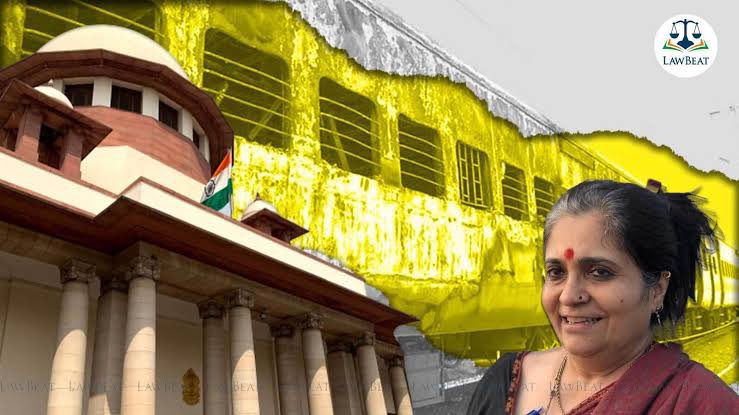Supreme Court division bench differs on protection to Teesta Setalvad in case of fabricating evidence

In September last year, Supreme Court had granted interim bail to Teesta Setalvad stating that since she is a woman and has been in custody since June 26, 2022 and in light of the documents which were presented and those which are alleged against her in light of the FIR, pertain to year 2002 and going by assertions, at best, the concerned documents were sought to be presented till 2012.
Activist Teesta Setalvad on Saturday failed to get an immediate relief from the Supreme Court as a bench of Justices Abhay S Oka and Prashant Kumar Mishra differed on the issue of grant of protection to her following the rejection of bail to her by the Gujarat High Court.
After recording the disagreement, the bench asked the Chief Justice of India to set up a larger bench. The case against her related to alleged fabrication of evidence in the 2002 Gujarat riots cases.
Setalvad rushed to the top court today after the High Court rejected her plea for regular bail in the matter. Acceding to her request, the top court set up the bench to conduct a special hearing at 6.30 pm on Saturday.
However, appearing for the Gujarat government, Solicitor General Tushar Mehta opposed the plea for grant of any relief to her.
He said Teesta did not deserve even interim bail as she had forged documents, tutored witnesses and influenced the justice delivery system to make sensational allegations against the state government. Mehta also read out excerpt of the Supreme Court's judgement which formed the basis of the FIR against her.
Justice Oka, who headed the bench, orally said that the High Court should have granted some to the petitioner to surrender.
Senior Advocate Chander Uday Singh and Advocate Aparna Bhat represented Setalvad. After the brief hearing, the bench sent the matter to the Chief Justice of India for taking an administrative decision to constitute a larger bench.
A larger bench is slated to take up the matter at 9.15 PM.
In its decision, the High Court has directed her to surrender immediately. It had also rejected her plea for 30 days time for it.
The HC also said that prima facie, it appeared that Setalvad used her close associates and riot victims to submit false and fabricated affidavits before the Supreme Court in a bid to allegedly to undermine the establishment and tarnish the image of the then Chief Minister (Narendra Modi).
The FIR was lodged against Setalvad and former senior police officers R B Sreekumar and Sanjiv Bhatt on the basis of the Supreme Court's judgement in the case of 'Zakia Ahsan Zafri and others Vs State of Gujarat', passed on June 24, 2022.
The top court had on September 2, 2022 granted her interim bail.
Setalvad's bail plea was rejected by an Ahmedabad court on July 30. Teesta Setalvad, a co-petitioner in the plea before Supreme Court challenging “clean chit” given to then Chief Minister Narendra Modi in the 2002 Gujarat riots case, was detained by Gujarat Anti-Terrorism Squad on June 25, 2022.
Supreme Court had remarked that the plea by Zakia Jafri was filed with 'Ulterior Design' and that the protest petition against the Magistrate's order which accepted the closure report of the Special Investigation Team (SIT) was being pursued at behest of "dictation" of someone.
While dismissing the plea which challenged the clean chit to Narendra Modi in Gujarat Riots, the Supreme Court had observed that the present proceedings have been pursued for the last 16 years to "keep the pot boiling, obviously, for ulterior design". While wrapping its knuckles on such abuse of process, top court added that those involved need to “be in the dock and proceeded with in accordance with law.”
Following the judgment, Gujarat Anti-Terrorist Squad (ATS) proceeded to arrest Teesta Setalvad in connection with a fresh case of forgery, criminal conspiracy and placing false evidence in court to frame innocent people in the 2002 Gujarat riots case. Teesta Setalvad and others have been booked under IPC sections 468 (forgery) and 194 (giving or fabricating false evidence with intent to procure conviction for capital offence) among other offences.
